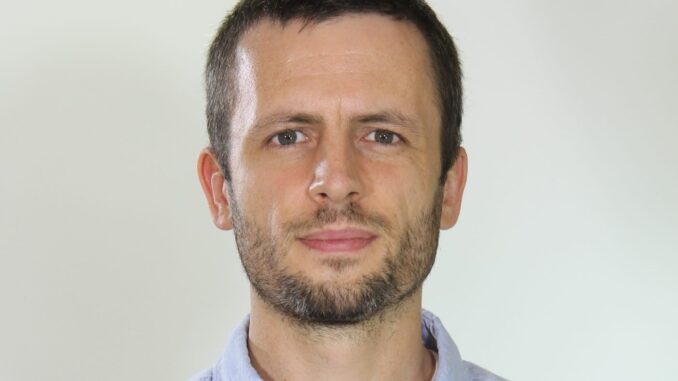
At age 22, Oliver Hughes (IPED ’11) was one of the youngest students to join the IPED program in 2009, arriving with a History degree from the United Kingdom (U.K.), limited development experience, and no strong background in economics or languages. Surrounded by more experienced peers, he embraced the program with curiosity and an open mind. Drawn to its practical focus, he found inspiration in classes like Agricultural Development and Project Management. He used his time in IPED to improve his French and pursue an internships with the United Nations Development Programme’s (UNDP) Equator Initiative, supported by a Fordham fellowship. His field research across Kenya, Rwanda, and Tanzania proved transformative, ultimately leading to a full-time role with UNDP in New York. Those early experiences laid a strong foundation for his career in international development and shaped his future trajectory in the field.
While Oliver’s first in-depth experience in international development came through his role at UNDP, his passion for fieldwork led him to Catholic Relief Service’s (CRS) International Development Fellows Program in 2013. After two rejections, he was finally accepted and placed in Burkina Faso, launching a decade-long career in West Africa. He spent seven years with CRS and three with Mercy Corps, evolving from proposal development to program management, then into monitoring and evaluation. Eight years in Eastern DRC deeply shaped his understanding of humanitarian work. In 2023, he returned to the U.K. and now serves as Regional Technical Director for Mercy Corps where providing technical support and strategic direction to Mercy Corps’ country programs and initiatives across the West and Central African region .
Oliver sees the field of international development at a critical juncture as Western governments reduce foreign aid budgets, prompting a need for reflection and reassessment. While development work can be highly rewarding, it comes with complex challenges, particularly regarding the sustainability and long-term impact of aid programs. In fragile regions like Eastern Congo, the continuation of progress often falters once donor funding ends, highlighting the difficulties of building lasting systems through short-term interventions. Those interested in humanitarian work during crises may find fulfilling opportunities with organizations such as CRS and Mercy Corps. Alternatively, individuals who are more focused on shaping the broader systems that support development — including financial institutions, government bodies, or global policy organizations — can contribute to long-term change through structural reform and strategic investment. No matter the role, the field demands a grounded perspective on its limitations, an openness to ongoing learning, and a belief in the power of gradual, positive transformation. This period of budget constraints serves as a reminder that real progress in international development requires both resilience and a long-term vision, along with the recognition that meaningful change often happens incrementally, not all at once.
